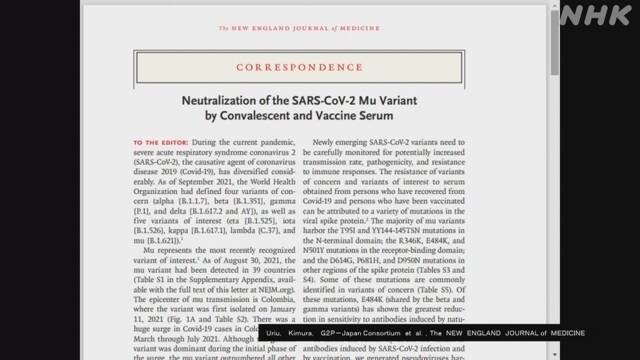A group such as the University of Tokyo conducted an experiment using the blood of a vaccinated person on "Mu strain", one of the mutant viruses of the new coronavirus that spread in South America, and found that it was an antibody against "Mu strain". It was found that the effect of was greatly reduced.
This research was published in the American medical journal "New England Journal of Medicine" by a group of associate professors Yoshi Sato of the Institute of Medical Science, University of Tokyo.
The group artificially reproduced the characteristics of the new coronavirus mutant virus "Mu strain" and tested how much it reacts with the antibody contained in the blood of people who have been vaccinated with Pfizer.
As a result, it was found that the amount of antibody required to suppress the action of the virus against the "mu strain" was 9.1 times higher than that of the conventional virus, and the action of the antibody was reduced. That is.
According to the group, the current vaccine can be expected to have various immune reactions other than antibodies, so this experiment alone does not reveal the effect on the vaccine's effect, so further research is needed in the future.
Associate Professor Sato said, "It is thought that mutations in the new coronavirus will continue in the future. It is important to clarify the characteristics of the virus and establish a mechanism for sharing information internationally, as in this study." increase.

